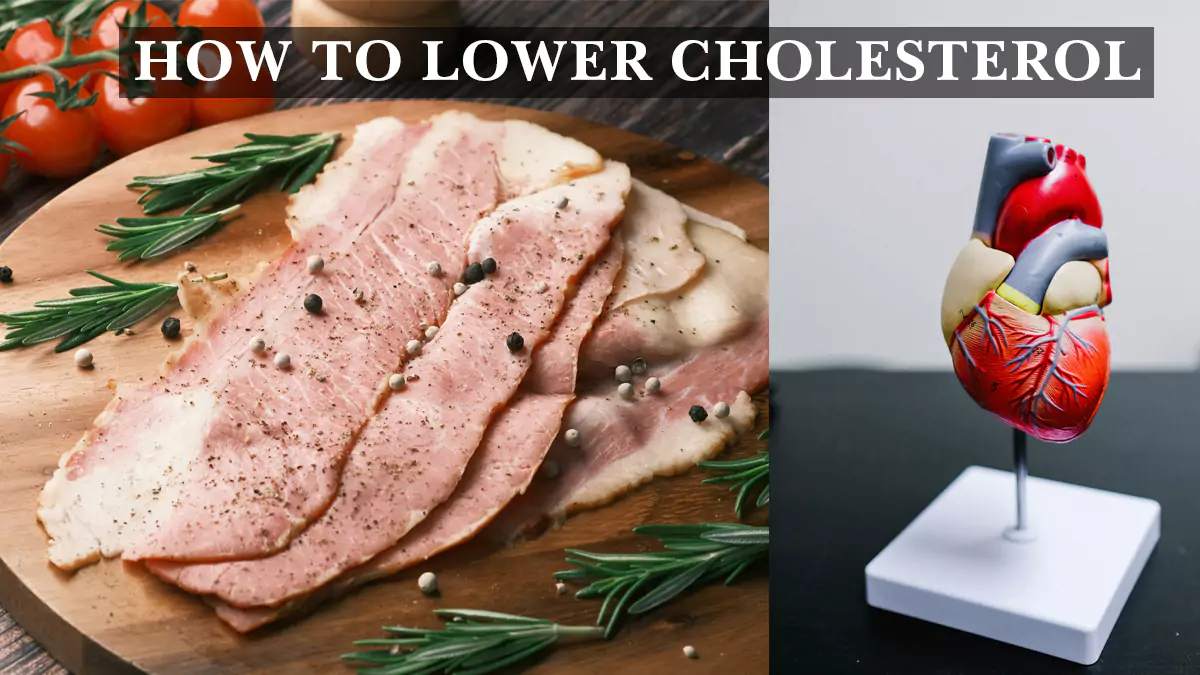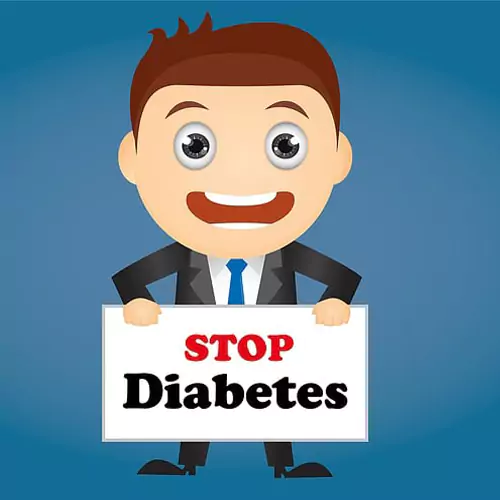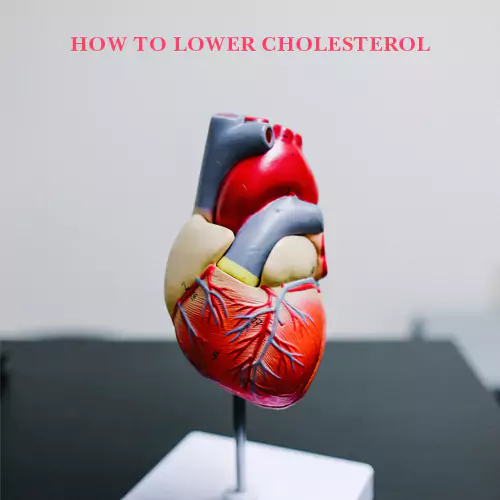How To Lower Cholesterol in our body, Which ingradient we should consume to overcome it?

Top 5 lifestyle adjustments to lower cholesterol
Modifications in lifestyle can both lower cholesterol and increase the effectiveness of cholesterol-lowering drugs.
You run a higher risk of heart disease and heart attacks if your cholesterol is high. Drugs have the potential to lower cholesterol. However, if you'd prefer to start by making these five healthful lifestyle adjustments to lower your cholesterol.
If you currently use medication, these adjustments may enhance the reduction of cholesterol.
1. Consume heart-healthy meals
A few dietary adjustments can lower cholesterol and strengthen heart health:
i). Cut back on saturated fats: Saturated fats, which are mostly present in red meat and dairy products with full fat, elevate your cholesterol overall. Lowering your intake of saturated fats will lower your "bad" cholesterol, or low-density lipoprotein (LDL).
ii). Get rid of trans fats: Trans fats are frequently found in margarines and store-bought cookies, crackers, and cakes. They are occasionally stated on food labels as "partially hydrogenated vegetable oil." Trans fats increase total cholesterol. By January 1, 2021, the Food and Drug Administration will no longer allow the use of partly hydrogenated vegetable oils.
iii). Consume a diet high in omega-3 fatty acids: There is no effect of omega-3 fatty acids on LDL cholesterol. But they also lower blood pressure, which is another heart-healthy effect. Omega-3 fatty acid-containing foods include walnuts, flaxseeds, salmon, mackerel, and herring.
iv). Boost the amount of soluble fiber: You can lower the amount of cholesterol that enters your system by consuming soluble fiber. Soluble fiber can be found in foods including apples, pears, kidney beans, oatmeal, and Brussels sprouts.
v). Add whey protein: Dairy products contain whey protein, which is thought to be responsible for many of the health advantages associated with dairy. Research has demonstrated that taking whey protein supplements reduces blood pressure, total and LDL cholesterol.
2. Increase your physical activity and exercise most days of the week
Cardiovascular health can be enhanced by exercise. The "good" cholesterol known as high-density lipoprotein, or HDL, can be increased with moderate physical exercise. Work up to at least 30 minutes of exercise five times a week, or 20 minutes of vigorous aerobic activity three times a week, with your doctor's approval.
i). strolling quickly every day on your lunch break
ii). Cycling to work
iii). Engaging in a preferred athletic activity
Joining an exercise club or finding an exercise partner can help you stay motivated.
3. Quit smoking
Reducing your smoking habit raises your HDL cholesterol. The advantages happen fast:
ii). After giving up cigarettes, your heart rate and blood pressure return to normal within 20 minutes.
iii). Your lung function and blood circulation start to improve three months after you stop smoking.
iv). Your chance of developing heart disease is halved within a year of stopping smoking.
4. Reduce your weight
High cholesterol is a result of even a few excess pounds carried around. Tiny adjustments build up. Use tap water instead of sugary drinks if you consume them. Eat some pretzels or air-popped popcorn as a snack, but watch your calorie intake. If you're craving something sweet, consider sherbet or low-fat candies like jelly beans.
Try to find methods to walk more during the day, including parking further away from your office or using the stairs rather than the elevator. During your work breaks, go for walks. Make an effort to perform more standing tasks, including cleaning the yard or cooking.
5. Only sometimes consume alcohol
Although moderate alcohol consumption has been associated with increased HDL cholesterol, the advantages aren't great enough to persuade someone who doesn't already drink to start. If you consume alcohol, do so sparingly. For healthy individuals, that translates to a maximum of one drink per day for men over 65 and women of all ages, and a maximum of two drinks per day for men under 65. Drinking too much alcohol can cause major health issues like heart failure, high blood pressure, and strokes.
Conclusion:
There are situations when leading a healthier lifestyle is insufficient to reduce cholesterol. If your physician prescribes medication to assist lower your cholesterol, follow through on your lifestyle modifications and take the prescription as directed. You can maintain a low dosage of medication by making lifestyle modifications.





